Lion’s mane mushrooms have a sweet taste and can be used in many delicious and nutritious dishes. Today, let’s explore the nutritional value of 100g of lion’s mane mushrooms and find out if eating them will make you fat.
1 Nutritional Value of 100g Lion’s Mane Mushrooms
Lion’s mane mushrooms offer a wide range of nutritional benefits for your health. According to the National Nutrient Database of the United States Department of Agriculture (USDA), 100g of lion’s mane mushrooms provide the following nutritional values:
- Calcium: 6% of the Daily Recommended Intake (DRI)
- Phosphorus: 10% DRI
- Potassium: 27% DRI
- Sodium: 31% DRI
- Zinc: 26% DRI
- Vitamin C: 8% DRI
- Vitamin B6: 7% DRI
- Niacin: 9% DRI
- Riboflavin: 27% DRI
- Thiamin: 16% DRI
- Iron: 4.5% DRI
- Magnesium: 5% DRI
- Copper: 17% DRI
- Manganese: 5% DRI
- Selenium: 7% DRI
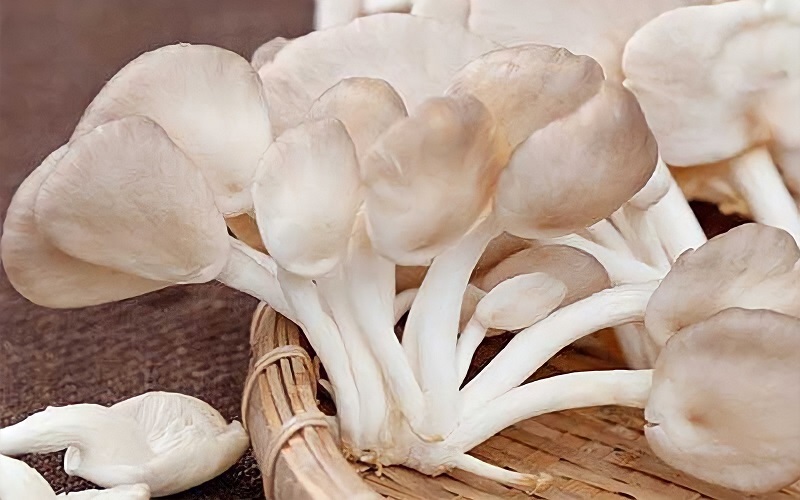 Lion’s mane mushrooms are packed with nutrients beneficial for your health
Lion’s mane mushrooms are packed with nutrients beneficial for your health
Health Benefits of Lion’s Mane Mushrooms
Support Diabetes Treatment
Lion’s mane mushrooms contain compounds that lower cholesterol and blood sugar levels, improving blood circulation and reducing the risk of diabetes. They also support the treatment of diabetes by regulating blood sugar.
Cancer Prevention
Lion’s mane mushrooms contain polysaccharides, which have anti-cancer properties and can destroy malignant cancer cells. Consuming these mushrooms may help prevent cancer and boost the body’s immune system, prolonging the lifespan of cancer patients.
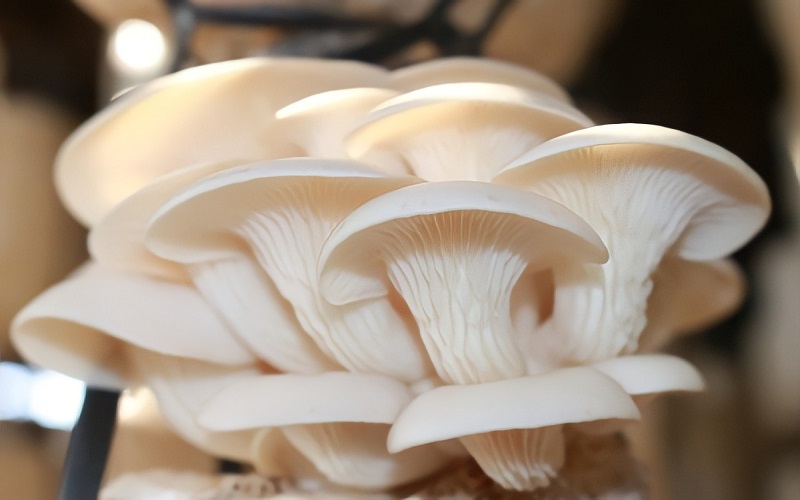 Lion’s mane mushrooms offer a range of health benefits
Lion’s mane mushrooms offer a range of health benefits
Improve Brain Function
Lion’s mane mushrooms are rich in vitamin B3, which can reduce the risk of Alzheimer’s disease and age-related cognitive decline.
Promote Cardiovascular Health
Lion’s mane mushrooms contain beta-glucans, a type of soluble fiber that is beneficial for heart health.
Additional Benefits
Lion’s mane mushrooms are also believed to help prevent strokes, lower blood pressure, improve gut health, combat obesity, cleanse the blood, eliminate parasites, and provide nourishment for recovering patients and pregnant women.
2 How Many Calories Are in 100g of Lion’s Mane Mushrooms?
According to the Phuong Nam Polyclinic, 100g of fresh, white lion’s mane mushrooms contain approximately 33 calories. When cooked, the calorie count increases. For example, 100g of stir-fried lion’s mane mushrooms will provide around 52 calories.
Now, let’s find out if consuming these mushrooms will lead to weight gain in the next section.
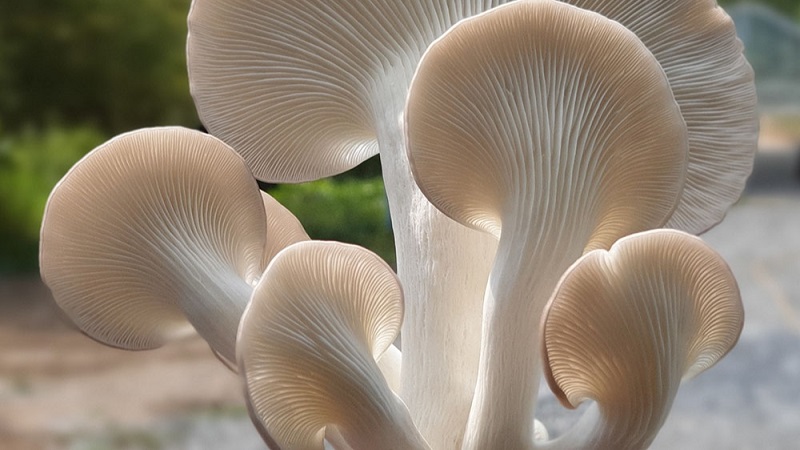 How many calories are in 100g of lion’s mane mushrooms?
How many calories are in 100g of lion’s mane mushrooms?
3 Will Eating Lion’s Mane Mushrooms Make You Fat?
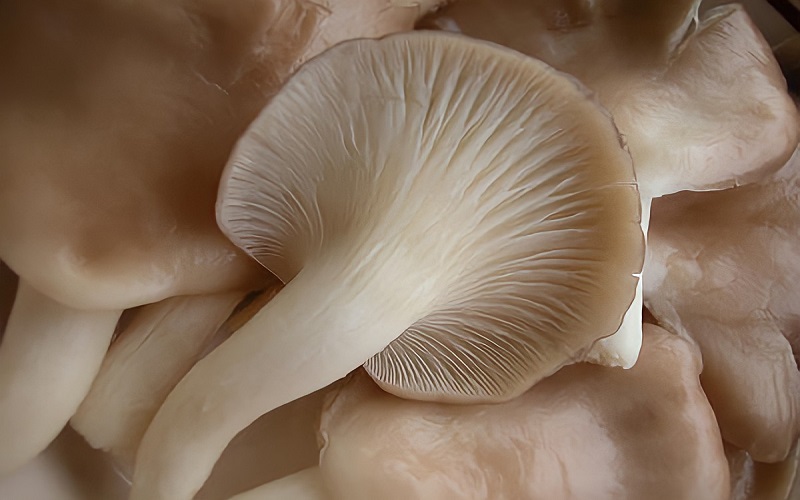 Will eating lion’s mane mushrooms make you fat?
Will eating lion’s mane mushrooms make you fat?
Lion’s mane mushrooms do not contain a significant amount of calories, so eating them will not make you fat. In fact, according to nutrition experts, consuming these mushrooms can help lower cholesterol and promote weight loss.
This type of mushroom boosts digestion and metabolism, helping to reduce excess body fat. Additionally, lion’s mane mushrooms are rich in fiber and have a spongy cap structure, creating a sense of fullness without consuming excessive calories.
4 Notes on Consuming Lion’s Mane Mushrooms for Optimal Health Benefits
When eating lion’s mane mushrooms, keep the following tips in mind to avoid any adverse effects and maximize their health benefits:
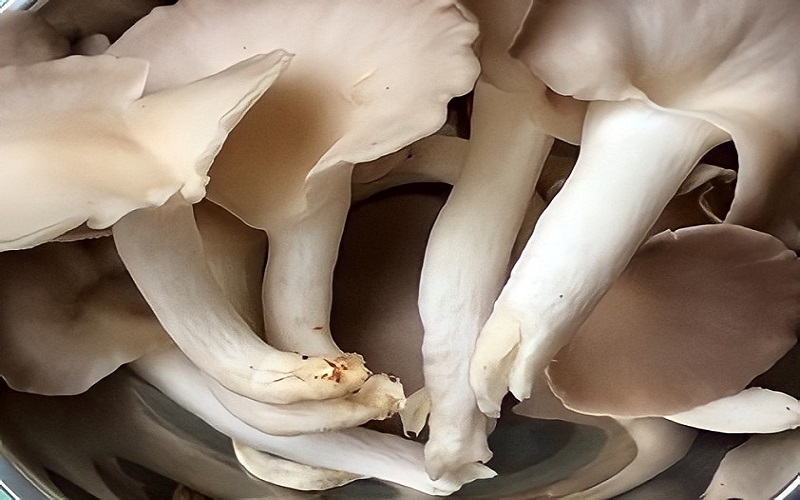 Notes on consuming lion’s mane mushrooms for optimal health benefits
Notes on consuming lion’s mane mushrooms for optimal health benefits
Avoid Excessive Use of Oil
Using too much oil when stir-frying mushrooms can hinder the absorption of their nutrients, leading to stomach discomfort, indigestion, and possible acid reflux.
Do Not Use Aluminum Cookware
Cooking lion’s mane mushrooms in aluminum pots or pans can cause a reaction between the active compounds in the mushrooms and the aluminum, resulting in discolored mushrooms and an unappetizing dish.
Avoid Combining with Cooling Foods
In traditional medicine, lion’s mane mushrooms are considered cooling. Combining them with other cooling foods can lead to digestive issues and a cold stomach.
Ensure Thorough Cooking
Undercooked mushrooms may still contain harmful bacteria, affecting food hygiene and posing risks to your health.
Cook at High Temperatures
Cooking mushrooms at low temperatures can result in longer cooking times and excess water release, affecting the taste and appearance of the dish. For best results, cook lion’s mane mushrooms at high temperatures for about 10 minutes to enhance their flavor.
5 Delicious Dishes Made with Lion’s Mane Mushrooms
Lion’s mane mushrooms can be used in a variety of tasty and nutritious dishes. Here are some examples:
Lion’s Mane Mushrooms Braised in Soy Sauce
Clean and marinate the lion’s mane mushrooms, then braise them in soy sauce for a delicious and flavorful dish.
Reference:
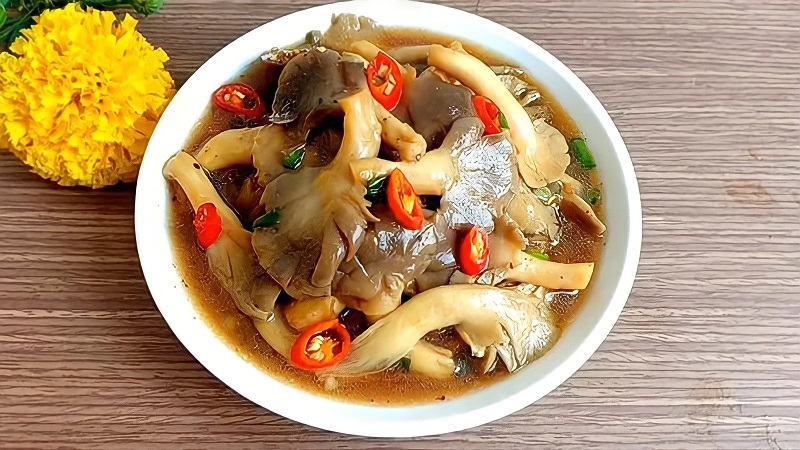 Lion’s mane mushrooms braised in soy sauce
Lion’s mane mushrooms braised in soy sauce
Crispy Lion’s Mane Mushrooms with Rice Flour
Coat lion’s mane mushrooms with crispy coating mix, deep-fry them, and then toss them with rice flour to create a dish that’s crispy on the outside and chewy on the inside.
Reference:
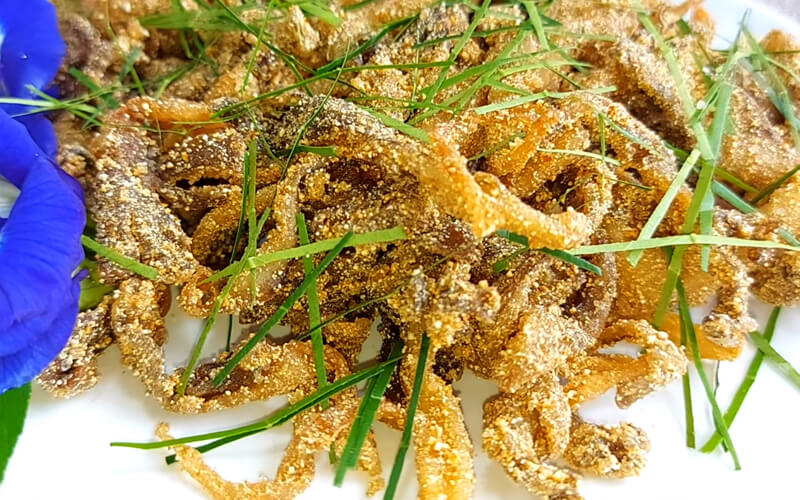 Crispy lion’s mane mushrooms with rice flour
Crispy lion’s mane mushrooms with rice flour
Lion’s Mane Mushrooms Stir-fried with Garlic
A simple yet mouthwatering dish, stir-fry lion’s mane mushrooms with minced garlic to enjoy the soft, sweet, and fragrant mushrooms with the distinctive aroma of fried garlic.
Reference:
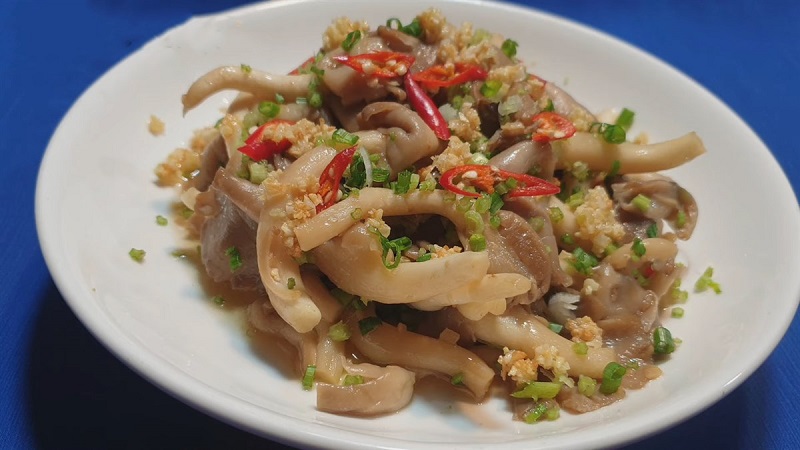 Lion’s mane mushrooms stir-fried with garlic
Lion’s mane mushrooms stir-fried with garlic
Lion’s Mane Mushrooms Stir-fried with Chili and Lemongrass
Stir-fry lion’s mane mushrooms with finely chopped chili and lemongrass for a delicious and spicy dish that can be prepared in just 5 minutes.
Reference:
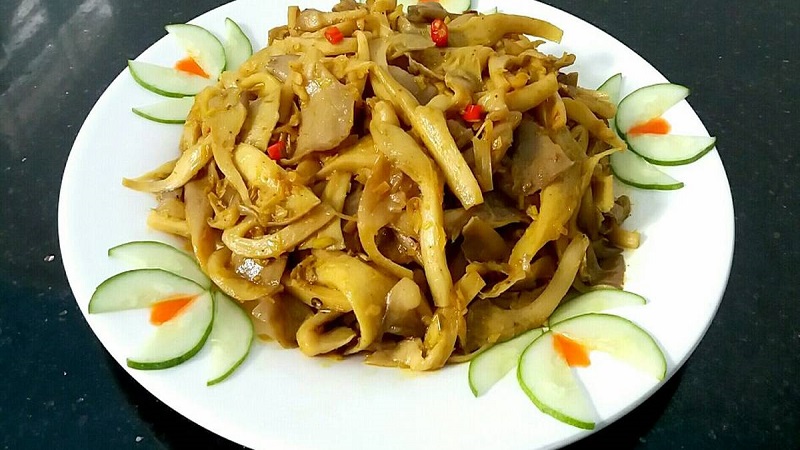 Lion’s mane mushrooms stir-fried with chili and lemongrass
Lion’s mane mushrooms stir-fried with chili and lemongrass
Lion’s Mane Mushroom “Chicken”
Coat lion’s mane mushrooms with a crispy coating and fry them over low heat to create a simple yet nutritious vegetarian “chicken” dish.
Reference:
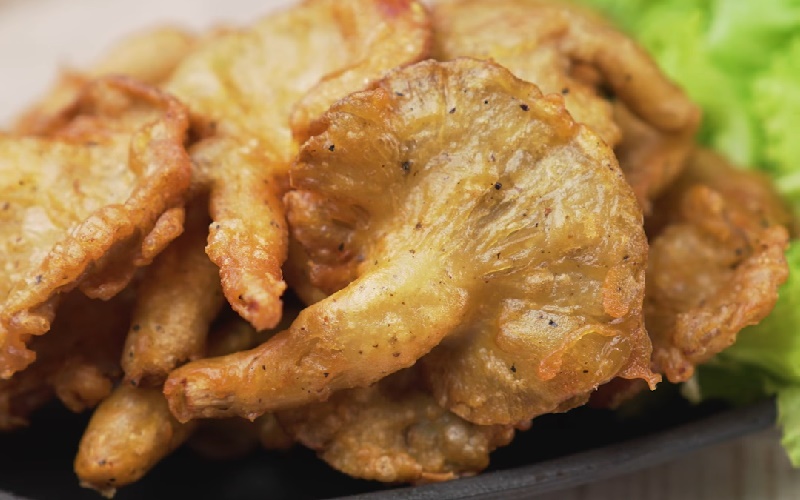 Lion’s mane mushroom “chicken”
Lion’s mane mushroom “chicken”
We hope you found this information about the nutritional value of lion’s mane mushrooms and the answer to “Will eating lion’s mane mushrooms make me fat?” helpful. Thank you for reading.
Source: Phuong Nam Polyclinic
You may also be interested in:
































